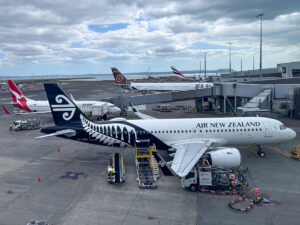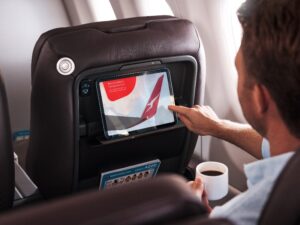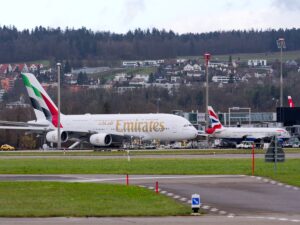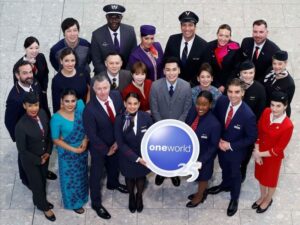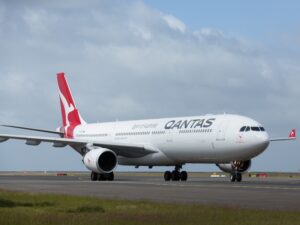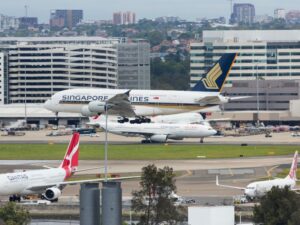
If you’ve tried searching for flights to Australia over the next two months, you’ve probably noticed there are very few seats available. There are a very small number of flights with expensive Business or First Class seats available that might get you home before December. But most of the “affordable” flights on sale are sadly just “ghost flights” that will never operate.
Countless Australians have been stung booking ghost flights over the past 18 months that either get cancelled closer to the departure date, or do not use a viable routing. For example, you might find an itinerary from the United States to Australia with a transit via New Zealand – which is unusable because you’re not allowed to transit via New Zealand to Australia under the current rules.
Here’s one example of a ghost flight to Australia. If you searched on ITA Matrix for a flight from Istanbul to Perth on 29 October 2021, this itinerary comes up:

This itinerary looks good in theory. But Malindo Air, the operating airline for the Kuala Lumpur-Perth sector, is not currently running any flights to Australia and has no plans to resume services until next year.
If you did a search for Istanbul-Perth flights on Skyscanner, you would find an even cheaper but totally ridiculous itinerary:

There is absolutely no point booking the above itinerary because the Air Asia flight from Denpasar to Perth will not operate. Furthermore, Indonesia is not even allowing international transits at the moment – let alone allowing Australians to enter the country in order to travel to a different airport in Jakarta and then stay overnight in Bali. You have to wonder why an online travel agency would even offer this ticket for sale.
Booking these kinds of itineraries may be tempting because they’re the cheapest flights available by a significant margin. But it’s totally pointless because you won’t get home. At best, you’re giving the airline an interest-free loan. At worst, you might not even get your money back.
Keep in mind that airlines including Air New Zealand, Virgin Australia, Fiji Airways, Malaysia Airlines, Air Niugini, Garuda Indonesia and Philippine Airlines will not necessarily provide refunds for flights that they cancel due to COVID-19 border restrictions. Other airlines may take many months to give your money back. (There may be exceptions if you’re booking travel from a country like the United States where airlines are legally required by local laws to refund cancelled flights.)
How to avoid booking a ghost flight to Australia
Although they are not currently operating any commercial passenger flights into Australia, the following airlines are now selling tickets on flights to Australia from December:
- Qantas (flights on sale from 18 December 2021)
- Hawaiian Airlines (from 17 December 2021)
- Air Canada (from 17 December 2021)
- Fiji Airways (from 1 November 2021)
- Air New Zealand (from 1 December 2021)
- Philippine Airlines (from 21 December 2021)
- Virgin Australia (from 23 December 2021 – Fiji only)
With the exception of the Fiji Airways flights scheduled for November, these flights are somewhat likely to go ahead if the Australian government removes the current international travel ban by December. But there is a risk in booking these flights as they will almost certainly be cancelled if travel restrictions still remain in December.
Of these airlines, only Qantas, Hawaiian Airlines and Air Canada guarantee to refund flights that they cancel. Keep this in mind if booking with these airlines!
For other airlines, here are five tips to avoid booking ghost flights:
1. Use a real travel agent
Many of the “ghost flight” itineraries are being sold by online travel agencies which are not across all the complex and ever-changing COVID-19 travel requirements. Their computers are simply spitting out these unusable itineraries and offering them for sale to unsuspecting customers.
This is where using a travel agent – a real human being, not a booking website like Skyscanner – is really helpful. Any good travel agent who has experience with COVID-19 repatriation travel to Australia will not book you an itinerary that is impossible to use or highly likely to get cancelled. While there is still a risk you could get offloaded from your flight when using a travel agent, that risk is much lower.
2. Check whether the flight is currently operating with passengers
Check to see whether the flight from the final overseas point of departure into Australia is operating with passengers this week. If flights on the same route and flight number are operating right now, they are more likely to be operating in the future.
If you search for the flight number on flight tracking websites like Flightradar24, keep in mind that some flights which appear to be running normally are currently only carrying cargo. One way to check if a flight is running with passengers is to check whether the airline is selling seats on flights departing from Australia this week. You can also check our list of airlines operating passenger flights into Australia in September 2021.
3. Beware of codeshare flights
Not all codeshares are ghost flights, but many of the ghost flights currently on sale are codeshares. (A codeshare is where a flight is marketed by one airline, which sells the flight under their own flight number, but operated by another airline.)
In general, it’s probably a good idea to avoid booking codeshare flights into Australia at the moment because passengers booked on codeshare tickets may be the first to be offloaded if there is another reduction in arrival caps. But if you do choose to book a codeshare flight, check whether the operating airline is currently selling tickets on the same service under their own flight number.
4. Check the transit rules for any transit or stopover countries
There’s no point booking a flight via New Zealand, Fiji, Indonesia or Brunei when Australians are not currently allowed to transit via any of these countries en-route to Australia!
Also keep in mind that the USA does not allow “sterile transits”, meaning you would need to enter the United States in order to connect to another international flight there. This is a problem if you’re not a US citizen and have been in a country subject to a US travel ban in the past 14 days such as Brazil, the UK, Ireland or anywhere in the European Schengen Area.
5. Don’t book immediate onward domestic connections in Australia
Currently, anyone entering Australia is required to undergo 14 days of mandatory hotel quarantine at the first point of entry into Australia. Until the hotel quarantine requirement is removed – which may happen around December for people fully immunised with a COVID-19 vaccine that is recognised by the Australian government – you cannot immediately connect to a domestic flight after you arrive in Australia.
Yet, there are still tickets on sale now with domestic connections departing a few hours after landing in Australia. There’s no point booking this if you’re travelling within the next couple of months as you won’t be allowed to take the onward domestic connection.
For more tips, see the AFF Guide to Travelling to Australia During COVID-19.
